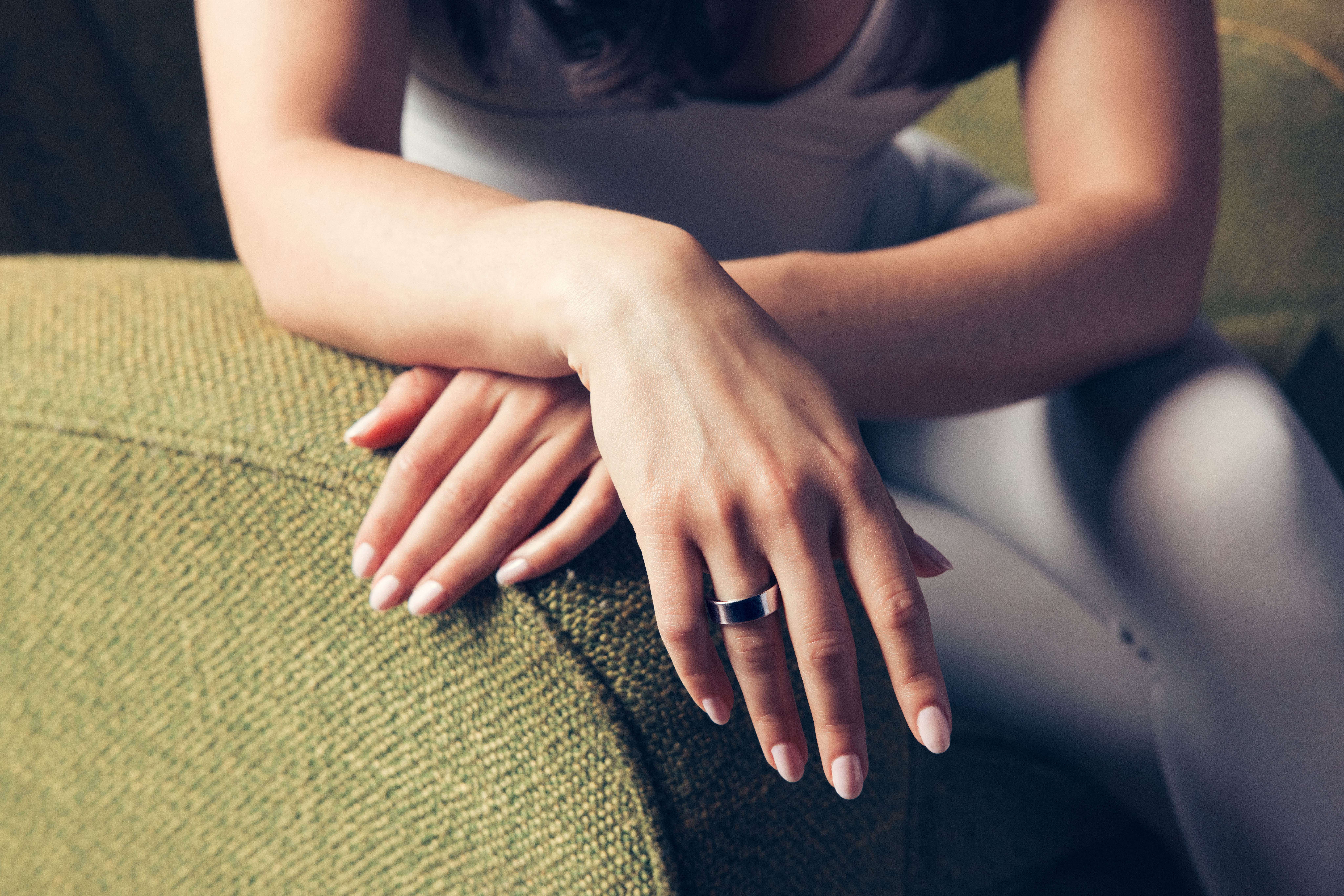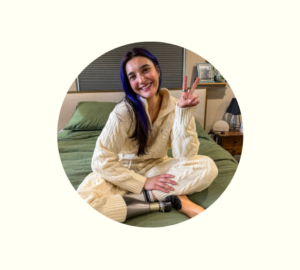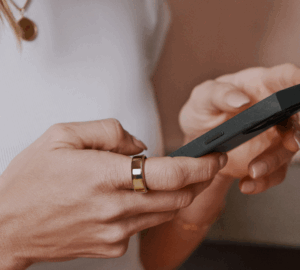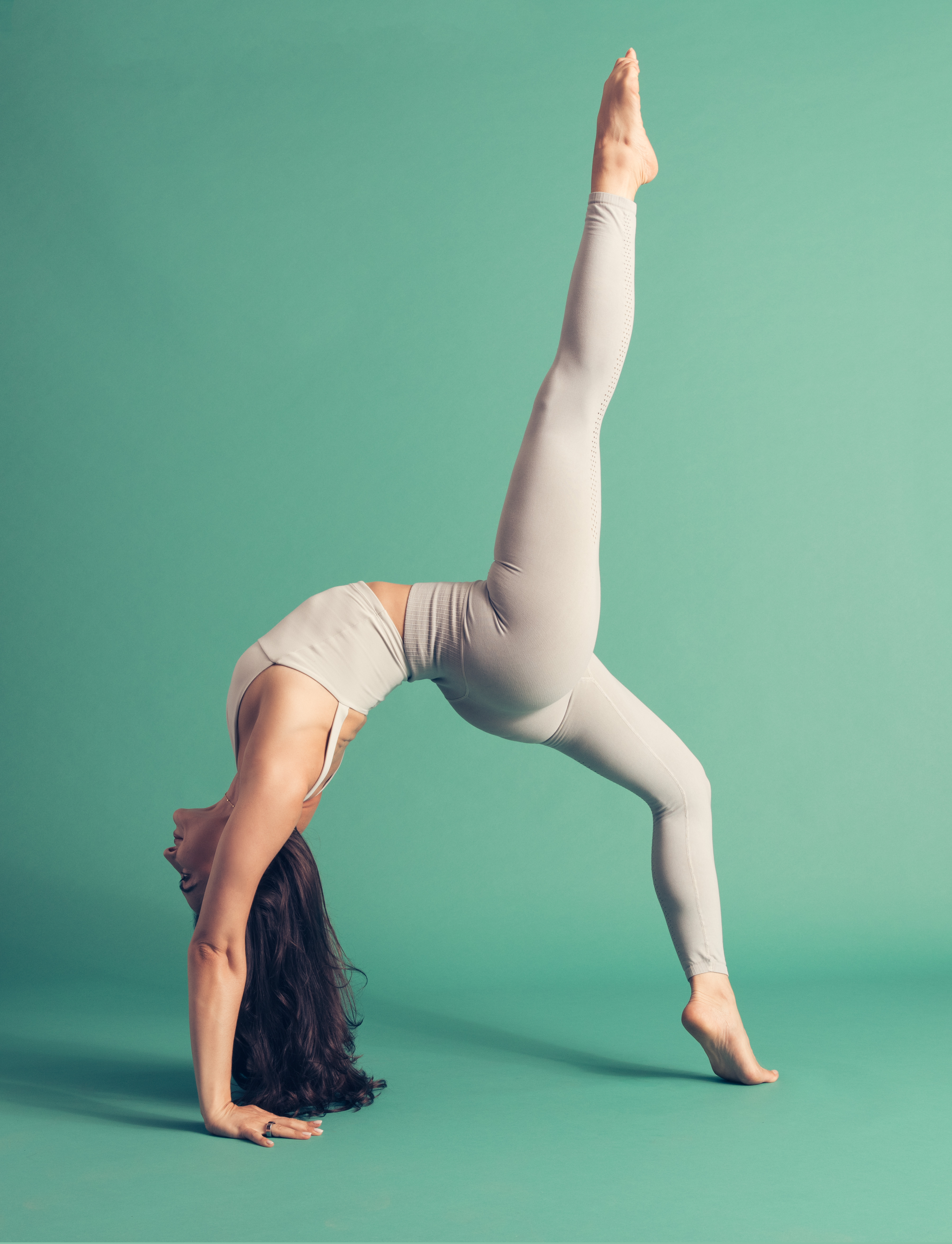Who: Nikki M., 30, breathwork coach and holistic personal trainer, Orange County, CA
Surprising Oura insight: If Nikki notices a lower-than-normal Sleep Score, she’ll opt to sleep in later instead of rising early for a morning workout. She also tries to sneak in a midday nap for added energy.
What led you to Oura?
In 2020, I got an IUD (intrauterine device) for birth control. Over the next two years, I started experiencing hair loss and skin problems, which I attributed to the IUD.
I decided to get the IUD removed and was looking for a more holistic approach to birth control. I started using Natural Cycles, but was struggling to remember to take my temperature every morning. Sometimes I’d forget until I was already out of bed, which reduces the accuracy of the reading. This led me to second guess whether it was working.
When I discovered that Natural Cycles partnered with Oura, I immediately got an Oura Ring. The transition from the IUD to Natural Cycles powered by Oura was super seamless, and the integration simplified the idea of a natural approach to birth control. It made it all seem less intimidating, driving a deeper understanding of my own body and cycle.
This also led me to experiment with cycle syncing. Using Natural Cycles powered by Oura, I can see where I am in my cycle and I try to adjust my workouts slightly if I need to take it easy. I’m still in the process of refining this, but it’s been great to use Oura to help me map this out.
How does Oura play a role in your work as a breathwork coach?

Breathwork is powerful, and Oura is a great tool to track metrics that can be improved by breathwork, such as heart rate variability (HRV) and resting heart rate (RHR). Research shows that breathwork can improve HRV over time by giving you a dose of hormetic stress (or “good stress“) which can improve your stress response over time. So it’s one of the best metrics to track if you’re starting a breathwork practice.
I often call breathwork “meditation for busy people,” because it’s an active practice. Many people struggle to find stillness during meditation, but find that they’re able to during breathwork. This is usually because they get immediate feedback during a session, like temperature changes or tingling.
Plus, with Oura, you have data to measure whether your new practice is working. You can use tags and monitor trends in your HRV – that’s super helpful.
How does breathwork actually help reduce stress?
Depending on the specific style of breathwork, you may intentionally increase your breathing rate, activating your sympathetic nervous system — the fight-or-flight reaction to an external stressor.
But during breathwork, you’re in a controlled, safe environment. You’re being guided and reassured. So instead of fighting that elevated feeling, you can play in it, and ultimately feel comfortable in it.
So next time you face a stressful situation in your life, you’re able to intentionally pause and think, “I’ve been here before.” Instead of immediately reacting, you become more aware of how to manage an elevated state, and you can respond in a more intentional way.
| Member Tip: In the Explore content in your Oura App, you’ll find a growing library of breathwork audio sessions. Plus, you’ll get a recap showing how your HRV, resting heart rate, and skin temperature variation changed during and after the session. |
What else have you learned about your health from Oura?
Oura has brought awareness to my sleeping habits. I’ve always cared about staying active and eating healthy, but never thought too much about my sleep. I knew that adults needed seven to nine hours, and that was the extent of it.
Thanks to Oura, I’ve learned that sleep is a crucial piece of the wellness puzzle. I have realized that the input determines the output – how much sleep I get correlates with how much energy I have to give to other things. When I focus on the input – sleep – I can achieve more throughout the day.
Due to the nature of my job as a trainer and coach, I wake up early (often 4am). Previously, after work, I would do heavy strength training or HIIT, regardless of how much I slept.
Now, if my Sleep Score is low, rather than fighting my fatigue, I’ll opt for Pilates and take a 20-minute nap. I was never a big napper before Oura, but seeing how it bumps up my Sleep Score is really motivating.
Overall, Oura is like a mirror. It has changed my outlook on health and helped me become more accepting of the fluctuations in my body and energy levels.
As a personal trainer, I also use Oura on the job for my clients who are also Oura members. I often check their Oura Scores before deciding on the workout for their session. Without Oura, I’m just going off what they tell me – but seeing it in data provides that added layer of information to help me be the best coach possible.
RELATED: 10 Simple Breathing Exercises for Sleep and Relaxation
What’s Your Oura Story?
Everyone’s story is unique, and we’d love to hear yours. Share your story here.












